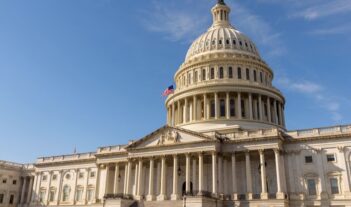
Experts discuss how regulators can protect consumers from aggressive collection practices.
Medical debt is the most prevalent type of collection account on U.S. consumers’ credit reports, representing nearly 60 percent of all collection actions in 2021. Experts estimate that the overall magnitude of past-due medical debt nationally is between $81 billion and $140 billion. Despite its pervasiveness, patient debt constitutes as little as 0.03 percent of annual hospital revenue. Even so, some hospitals pursue aggressive collection actions against debtors, including by garnishing wages and placing liens on assets.
If a hospital’s internal team is unable to collect a patient’s debt, the hospital commonly assigns the account to a third-party collection agency, often leading to a derogatory mark on the patient’s credit report. Sometimes, hospitals instead opt to sue their patients in court for unpaid bills. Because many debt defendants cannot afford legal representation and fail to appear in court, collection suits often result in default judgments in hospitals’ favor—whether the medical bills were accurate or not. These actions can disproportionately burden patients and their families, potentially leading to bankruptcy and inadequate future medical care.
Consumer debt collection is regulated by the Fair Debt Collection Practices Act (FDCPA), which prohibits third-party collectors from engaging in deceptive and harassing tactics. The Consumer Financial Protection Bureau (CFPB) recently enacted new rules that clarify disclosure requirements, communication guidelines, and credit reporting limitations for medical debts. Because the FDCPA only applies to designated debt collectors, however, hospitals are not subject to the same restrictions when pursuing overdue bills themselves.
The FDCPA does not prevent states from further limiting medical debt collection practices, and several have enacted additional protective measures since 2021. Four years ago, the National Consumer Law Center recommended states adopt the Model Medical Debt Protection Act to bolster consumer protections, but few jurisdictions have accepted this model.
In 2022, regulations adopted under the No Surprises Act established billing restrictions for emergency and out-of-network medical bills as part of a larger effort to decrease the medical debt burden nationwide. In addition, the CFPB has warned debt collectors that any attempts to collect on bills barred by the No Surprises Act would violate the FDCPA. Debts resulting from surprise charges that predate the Act, however, are apparently still fair game for collectors.
Last year, the three major credit bureaus announced that certain medical debts would no longer appear on credit reports, but unpaid collections and any debts over $500 would remain on reports, continuing to hamper consumer access to credit. Because many health care expenses are unexpected and beyond patients’ control—and exceed $500—policymakers and advocacy groups alike argue that more regulation is needed to protect consumers from aggressive collection practices and negative credit ramifications.
In this week’s Saturday Seminar, experts examine the impact of medical debt collection in the United States and propose regulatory solutions to protect consumers.
- In a recent report, the CFPB concludes that current collection practices can cause significant harm to the millions of Americans who have medical debt. The CFPB estimates that between 18 to 35 percent of people have medical debt in collection. The agency argues that because not all care providers have adequate policies in place to protect patients from financial harm, vulnerable populations—especially people of color and the uninsured—can experience unfair pricing and reporting practices. According to the CFPB, these practices can adversely affect indebted patients’ financial, physical, and mental well-being. The CFPB states that it will address the issue by working with patients and credit reporting agencies to avoid unfair harm to people with medical debt.
- According to a Modern Law Review article by UCLA Law and Department of Philosophy professor Seana Valentine Shiffrin, contract law’s delegation doctrine should require debtor permission for the sale of consumer debt because such assignments involve hidden duty delegations. Shiffrin argues that the original creditor bears a duty to act reasonably toward its vulnerable debtor, but collection agents may act less reasonably because their business models do not depend on helping consumers and generating repeat business. Shiffrin contends that the facilitation of nonconsensual creditor-debtor relationships contradicts the requirement of consent to form a contract in the first place.
- In a recent report from Axios and Johns Hopkins University, Michelle McGhee and Will Chase of Axios claim that many of the most profitable U.S. hospitals regularly engage in predatory collection practices against patients with outstanding medical bills. McGhee and Chase argue that hospitals have incentives to overprice their services and that such inflated prices increase costs to all patients. They further note that when patients are unable to pay, some of the highest-revenue hospitals have aggressively used lawsuits to force payment. McGhee and Chase conclude that governmental and nonprofit hospitals engaging in these practices are not presently fulfilling their charitable obligations and are violating the spirit of the Affordable Care Act.
- The U.S. government’s lack of oversight gives privately operated nonprofit hospitals wide discretion over medical debt collection, including from patients who cannot afford to pay their health care bills, argues Human Rights Watch researcher Matt McConnell. In his report, McConnell recommends greater regulation of nonprofit hospitals and third-party debt collectors to prohibit “rights-impacting practices” that can arise from “extraordinary collection actions,” including foreclosures, bank account seizures, and imprisonment for patients’ noncompliance with debt collection proceedings. In particular, McConnell suggests that states subsidizing nonprofit hospitals’ charity care programs should strengthen oversight to ensure that hospitals are not engaging in abusive billing or collection practices.
- In an article for Health Affairs, Brian N. Schultz of Mass General Brigham, Alexander T. Janke of the University of Michigan’s Institute for Healthcare Policy and Innovation, and Arjun K. Venkatesh of Yale School of Medicine argue that poor data collection and transparency hinder efforts to understand medical debt lawsuits and make needed legislative reforms. Because of these challenges, Schultz, Janke, and Venkatesh suggest that it is difficult to differentiate between appropriate medical debt collection and abusive practices. In addition to calling for improved data reporting, Schultz, Janke, and Venkatesh recommend amending the FDCPA, which currently only applies to “debt collectors” and not health care entities engaged in debt collection.
- Julia Fonseca, assistant professor of finance at the University of Illinois Urbana-Champaign Gies College of Business, argues that government regulation of third-party debt collectors limits credit availability, forcing consumers to seek riskier financing options. In an article published in The Journal of Finance, Fonesca demonstrates that restricting debt collection makes consumer contracts harder to enforce, reducing the supply of mainstream credit to riskier borrowers. She explains that these borrowers are instead pushed into the more expensive payday lending market, where annual percentage rates are set as high as 500 percent. Fonesca also shows that payday lenders typically collect their own debts, meaning that they are not subject to the same restrictions as third-party collectors under the FDCPA.
The Saturday Seminar is a weekly feature that aims to put into written form the kind of content that would be conveyed in a live seminar involving regulatory experts. Each week, The Regulatory Review publishes a brief overview of a selected regulatory topic and then distills recent research and scholarly writing on that topic.



